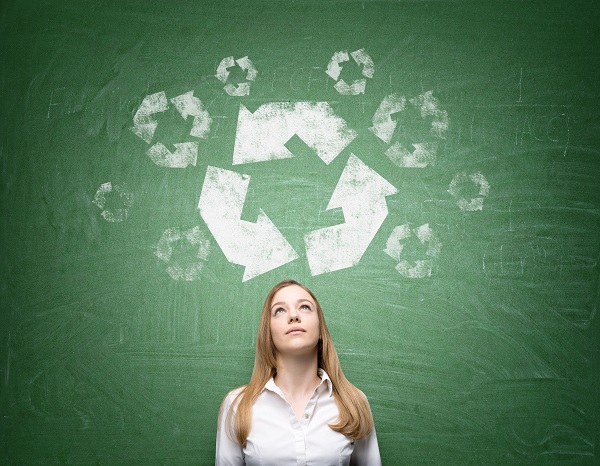Things You Didn't Know You Could Recycle

Did you know that there's a whole world of items you can recycle that you probably never even considered? It's true! When it comes to recycling, there's more than meets the eye.
Sure, we all know about paper and plastic, but what about those old coat hangers taking up space in your closet or those CDs and DVDs collecting dust on your shelf? And that's just the tip of the iceberg.
There are so many surprising items that can be recycled, and by doing so, you can make a real difference in the world. So, sit tight and get ready to uncover the hidden gems of recycling that you never knew existed.
Household Item Recycling
When it comes to recycling household items, it's important to know which items can be recycled and how to dispose of them properly. Some common household items that can be recycled include coat hangers, compact fluorescent light bulbs, toilets, CDs and DVDs, cigarettes, batteries, and even guitar strings. These items shouldn't be thrown in the bin but should be disposed of correctly through recycling. To ensure proper disposal, contact your local authorities or recycling centers for recycling options for these items.
The recycling process for these household items varies depending on the material. For example, coat hangers can be recycled by taking them to a recycling center or donating them to second-hand stores. Compact fluorescent light bulbs should be taken to recycling centers that accept hazardous waste to prevent environmental damage. Toilets can also be recycled by contacting local recycling facilities or plumbing supply stores.
Electronics Recycling
Recycling electronics is crucial for preventing environmental damage from electronic waste. Improper disposal of electronic equipment can have serious consequences for the environment. When electronics end up in landfills, they can release toxic substances such as lead, mercury, and cadmium into the soil and groundwater. These pollutants can contaminate local ecosystems and pose a threat to human health.
On the other hand, recycling electronics offers numerous benefits. First and foremost, it helps to conserve valuable resources. Many electronic devices contain precious metals like gold, silver, and copper, which can be recovered and reused through recycling. By recycling these materials, we can reduce the need for mining and extraction of raw materials, which in turn helps to preserve natural habitats and reduce energy consumption.
Furthermore, e-waste recycling helps to reduce greenhouse gas emissions. The manufacturing of electronic devices requires significant amounts of energy, and recycling helps to offset these emissions. According to the Environmental Protection Agency (EPA), recycling one million laptops can save the energy equivalent of powering over 3,500 homes for a year.
Carpet Recycling
To effectively reduce the amount of carpet ending up in landfills each year, consider exploring carpet recycling options.
Tons of carpet are disposed of annually, contributing to the environmental impact of waste management.
One way to reduce this impact is by upcycling carpet. Instead of throwing away old carpet, it can be repurposed for other uses such as pond lining or pet bedding.
Another option is to contact the company you purchased the carpet from, as they may have re-use schemes in place.
Additionally, local authorities may have the capacity to recycle carpet. By recycling carpet, we can divert it from landfills and give it a second life.
This not only helps to reduce waste but also promotes sustainability.
Running Shoe Recycling
If you're looking to make a positive environmental impact and reduce waste, consider exploring the world of running shoe recycling. Recycling options are available for old running shoes, allowing you to give them a second life instead of throwing them in the bin. Companies like Nike and the More Foundation have donation programs and recycling schemes specifically for running shoes. By participating in these programs, you can help reduce the environmental impact of shoe waste.
Recycling running shoes has several benefits. Firstly, it reduces waste that would otherwise end up in landfills. According to the Environmental Protection Agency, over 20 billion pounds of shoes are thrown away each year, and most of them aren't biodegradable. By recycling your running shoes, you can help divert this waste from landfills.
Secondly, recycling running shoes promotes sustainability. Many shoe recycling programs aim to repurpose the materials from old shoes, such as rubber and foam, to create new products or even new shoes. This reduces the need for raw materials and helps conserve resources. Additionally, some programs donate refurbished shoes to those in need, further extending their lifespan and reducing the demand for new shoes.
To participate in running shoe recycling, you can contact recycling companies or organizations that offer shoe recycling services. They'll provide you with information on how to properly donate or recycle your old running shoes. By taking this small step, you can make a big difference in reducing waste and minimizing the environmental impact of shoe production and disposal.
Aggregate Recycling
Excess aggregates from garden projects can be recycled at independent recycling facilities for re-use in construction and land restoration.
Recycling aggregates such as soil, sand, hardcore, and stone not only gives them a second purpose but also offers several environmental benefits.
Recycled aggregates have various uses in construction projects. They can be used as a foundation for roads, buildings, and parking lots. They can also be used as a base for pipes and drainage systems. Additionally, recycled aggregates can be used in land restoration projects, such as creating embankments or filling in excavated areas.
Aggregate recycling has several environmental benefits. Firstly, it reduces the need for new aggregate extraction, which helps preserve natural resources. Secondly, recycling aggregates helps to reduce the amount of waste sent to landfills, minimizing the environmental impact of waste disposal. Lastly, using recycled aggregates in construction projects can help reduce greenhouse gas emissions associated with the production and transportation of new aggregates.
Waste Service Reviews
Waste service reviews provide valuable insights and evaluations for businesses seeking efficient and effective waste management solutions. Customer feedback is essential in identifying areas for improvement and ensuring that waste services meet the needs and expectations of businesses. By reviewing waste service providers, businesses can make informed decisions and choose a waste management solution that aligns with their goals.
Efficient waste management is crucial for businesses to reduce costs, minimize environmental impact, and comply with regulations. Waste service reviews enable businesses to assess the efficiency of waste collection, disposal, and recycling processes. This data-driven approach helps identify opportunities for optimization and streamlining of waste management operations.
Customer feedback plays a significant role in waste service reviews. It allows businesses to gauge the satisfaction levels of other customers and assess the reliability and professionalism of waste service providers. Positive recommendations from satisfied customers can give businesses confidence in their waste management choices.
Furthermore, waste service reviews highlight the importance of customer service in waste management. Businesses value waste service providers who are knowledgeable, helpful, and responsive to their needs. Efficient waste collection, prompt delivery and collection of skips, and flexibility in changing booking dates are factors that contribute to a positive customer experience.
Conclusion
In conclusion, recycling offers a multitude of benefits for the environment and our daily lives.
By recycling household items, electronics, carpets, running shoes, and aggregates, we can contribute to a cleaner and more sustainable world.
Not only does recycling prevent environmental damage, but it also promotes sustainability.
So, let's continue to recycle these items and make a positive impact on our planet.






















